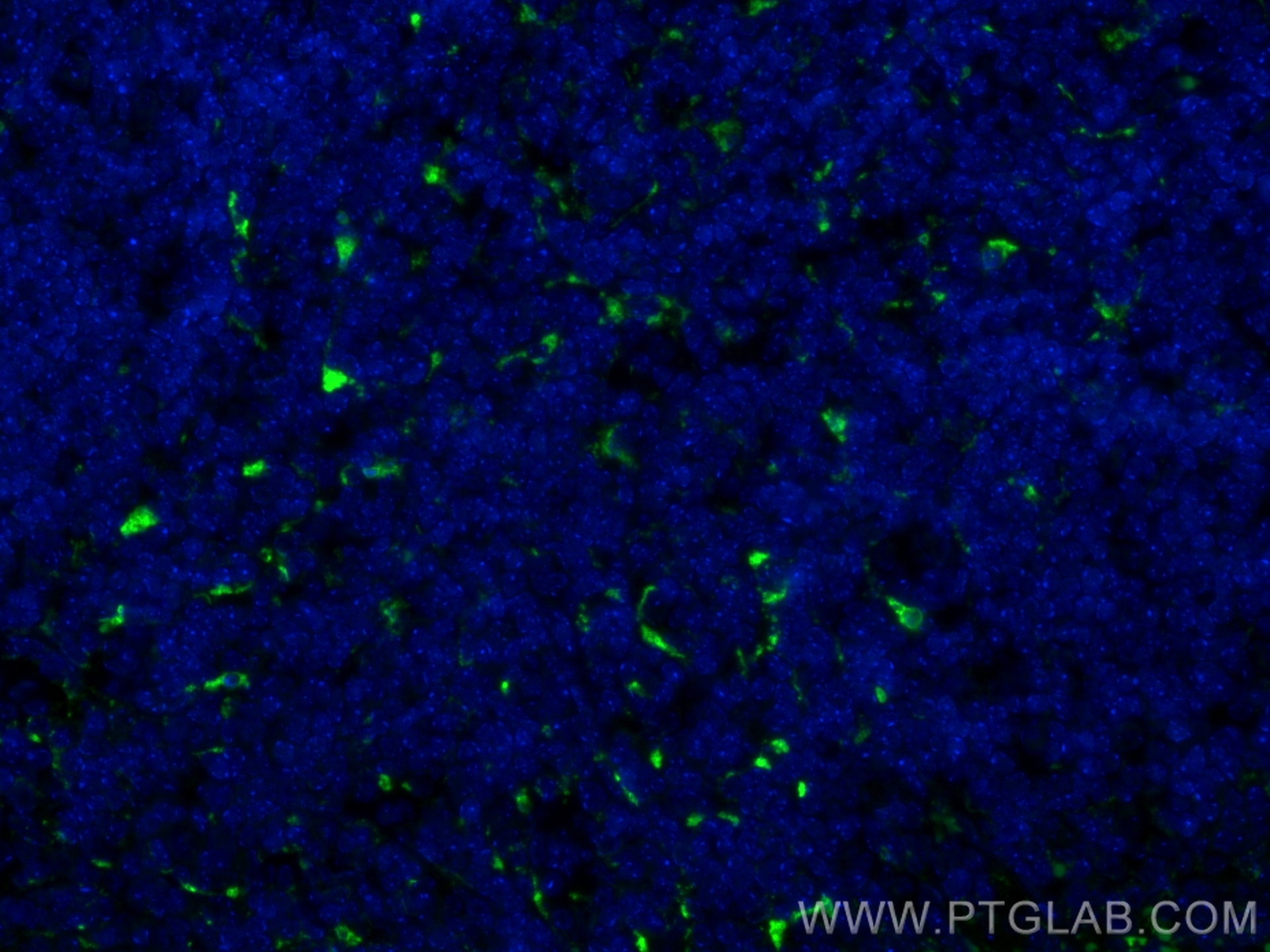CD68 Rekombinanter Antikörper
CD68 Rekombinant Antikörper für IF-P
Wirt / Isotyp
Kaninchen / IgG
Getestete Reaktivität
Maus, Ratte
Anwendung
IF-P
Konjugation
CoraLite® Plus 488 Fluorescent Dye
CloneNo.
230504G10
Kat-Nr. : CL488-83014-5
Synonyme
Geprüfte Anwendungen
| Erfolgreiche Detektion in IF-P | Mausmilzgewebe |
Empfohlene Verdünnung
| Anwendung | Verdünnung |
|---|---|
| Immunfluoreszenz (IF)-P | IF-P : 1:50-1:500 |
| It is recommended that this reagent should be titrated in each testing system to obtain optimal results. | |
| Sample-dependent, check data in validation data gallery | |
Produktinformation
CL488-83014-5 bindet in IF-P CD68 und zeigt Reaktivität mit Maus, Ratten
| Getestete Reaktivität | Maus, Ratte |
| Wirt / Isotyp | Kaninchen / IgG |
| Klonalität | Rekombinant |
| Typ | Antikörper |
| Immunogen | CD68 fusion protein Eg0787 |
| Vollständiger Name | CD68 antigen |
| Berechnetes Molekulargewicht | 35 kDa |
| Beobachtetes Molekulargewicht | 100-120 kDa |
| GenBank-Zugangsnummer | NM_001291058.1 |
| Gene symbol | Cd68 |
| Gene ID (NCBI) | 12514 |
| Konjugation | CoraLite® Plus 488 Fluorescent Dye |
| Excitation/Emission maxima wavelengths | 493 nm / 522 nm |
| Form | Liquid |
| Reinigungsmethode | Protein-A-Reinigung |
| Lagerungspuffer | PBS with 50% glycerol, 0.05% Proclin300, 0.5% BSA |
| Lagerungsbedingungen | Bei -20°C lagern. Vor Licht schützen. Nach dem Versand ein Jahr stabil. Aliquotieren ist bei -20oC Lagerung nicht notwendig. 20ul Größen enthalten 0,1% BSA. |
Hintergrundinformationen
Mouse CD68 (also known as macrosialin) is a type I transmembrane glycoprotein that is highly and specifically expressed by mouse tissue macrophages, and to a lesser extent by dendritic cells. It belongs to the lysosomal/endosomal-associated membrane glycoprotein (LAMP) family and primarily localizes to lysosomes and endosomes with a smaller fraction circulating to the cell surface. CD68 is also a member of the scavenger receptor family. It may play a role in phagocytic activities of tissue macrophages.
Protokolle
| PRODUKTSPEZIFISCHE PROTOKOLLE | |
|---|---|
| IF protocol for CL Plus 488 CD68 antibody CL488-83014-5 | Protokoll herunterladen |
| STANDARD-PROTOKOLLE | |
|---|---|
| Klicken Sie hier, um unsere Standardprotokolle anzuzeigen |


